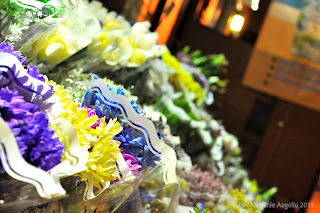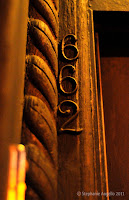This is for Danny Arana…because he’s wonderful.

New York is cold, glittering, malign…There is a sort of atomic frenzy to the activity going on; the more furious the pace, the more diminished the spirit…Nobody knows what it's all about. Nobody directs the energy. Stupendous. Bizarre. Baffling. A tremendous reactive urge, but absolutely uncoordinated.
-Henry Miller
In the area surrounding what was once considered the 14th Ward of Williamsburg, Brooklyn, we’re all a derivation of some ethnic corner of these (still) ethnic streets. Aside from Henry Miller’s German 662 Driggs Avenue home location, and the Italian plots on McGuinness Boulevard that my family once called home, the Latin element sings its’ song. The purportedly “hip” New York locale is not as it was in the early 20th Century. I imagine that, while Miller was growing up at the corner of Driggs and Metropolitan, strains of Ragtime seeped through the cracked windows of brownstones. Here, in our earlyish 21st Century, beats of merengue muffle through the neon sighs of shops with Corona signs, and the obvious Reggaeton bounces out of car windows.
While working for a telegraph company in New York, Henry Miller supposedly stated that someone should write O. Henry stories about the workers. Many of those mused about laborers had most likely crossed into our country via New York Harbor. When the Statue of Liberty was dedicated in 1886, only 5 years before Miller’s birth, it was inscribed with Emma Lazarus’ words “Give me your tired, your poor/Your huddled masses yearning to breathe free…” The definition of “tired” and “poor” has since evolved to include this land’s own wanderers. Your bartender. Your cocktail waitress. He is also a musician. She is also an artist. Much like their international ancestors, some drive forced this place upon them. They serve up their solitude here, and internally clamor for their starring role in an O. Henry tale.

 Working as a music photographer and writer up and down the Eastern Seaboard has offered me the chance to become acquainted with many bartenders and band members. I do not, however, only shove a camera their faces. I actually talk to them, and most of the time, instantly consider them friends. Below is a recent exchange, conducted at the Trash Bar in Williamsburg, located only a few blocks from Miller’s childhood home.
Working as a music photographer and writer up and down the Eastern Seaboard has offered me the chance to become acquainted with many bartenders and band members. I do not, however, only shove a camera their faces. I actually talk to them, and most of the time, instantly consider them friends. Below is a recent exchange, conducted at the Trash Bar in Williamsburg, located only a few blocks from Miller’s childhood home.
Me: So, what do you do when you’re not bartending?
Bartender: I’m here for acting. I do band stuff too. Well, I’m taking a break. I needed money. I want to do it again. Being in a band.
Me: You from New York?
Bartender: North Carolina.
Me: I lived in Asheville for a bit. I’m from here though. Random question. Do you know anything about Henry Miller?
Bartender: Well, yes and no. I’ve read Tropic of Cancer, but aside from that, I don’t know much. Me: You know more than a lot of people. He grew up down the block. Right on Driggs.
Bartender: Huh. I had no idea.
Me: Yeah, he was a lot like us. Well, he…umm….tell me, if you had the chance…if you could do it all again…would you have chosen the artist’s life if you’d known it would be this hard?
Bartender: (pauses) Yes.


When given the opportunity, I will gladly pat the arm of a relocated sound guy from Kansas and say, “Streets ain’t paved with gold, buddy,” and then empathically watch as his youth smiles a smile of hope, denial and premature disillusionment, that only the New York concrete can create. Everyone wants to leave where they’re from; and sometimes, that “where they’re from” is where everyone wants to be.




















